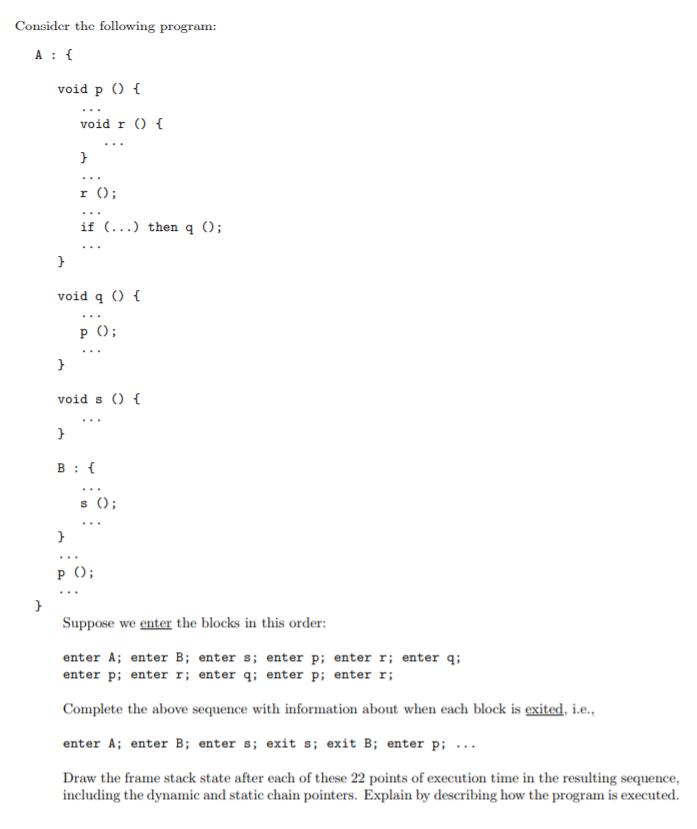Question
Consider the following program: A { void p () { void r () { } r (); if (...) then q (); } }

Consider the following program: A { void p () { void r () { } r (); if (...) then q (); } } void q () { } P (); ... void s () { } B: { } s (); P (); Suppose we enter the blocks in this order: enter A; enter B; enter s; enter p; enter r; enter q; enter p; enter r; enter q; enter p; enter r; Complete the above sequence with information about when each block is exited, i.e., enter A; enter B; enter s; exit s; exit B; enter p; ... Draw the frame stack state after each of these 22 points of execution time in the resulting sequence, including the dynamic and static chain pointers. Explain by describing how the program is executed.
Step by Step Solution
There are 3 Steps involved in it
Step: 1

Get Instant Access to Expert-Tailored Solutions
See step-by-step solutions with expert insights and AI powered tools for academic success
Step: 2

Step: 3

Ace Your Homework with AI
Get the answers you need in no time with our AI-driven, step-by-step assistance
Get StartedRecommended Textbook for
Microeconomics An Intuitive Approach with Calculus
Authors: Thomas Nechyba
1st edition
538453257, 978-0538453257
Students also viewed these Programming questions
Question
Answered: 1 week ago
Question
Answered: 1 week ago
Question
Answered: 1 week ago
Question
Answered: 1 week ago
Question
Answered: 1 week ago
Question
Answered: 1 week ago
Question
Answered: 1 week ago
Question
Answered: 1 week ago
Question
Answered: 1 week ago
Question
Answered: 1 week ago
Question
Answered: 1 week ago
Question
Answered: 1 week ago
Question
Answered: 1 week ago
Question
Answered: 1 week ago
Question
Answered: 1 week ago
Question
Answered: 1 week ago
Question
Answered: 1 week ago
Question
Answered: 1 week ago
Question
Answered: 1 week ago
Question
Answered: 1 week ago
View Answer in SolutionInn App



